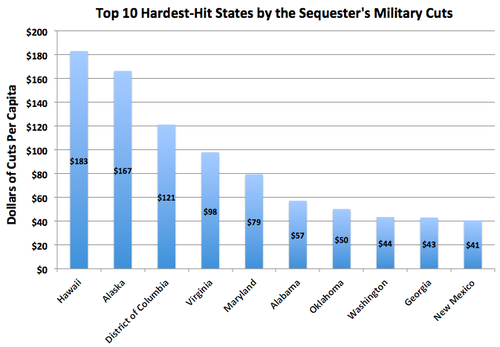A little context
By SB Anderson
While a last-minute bill kept active duty military members paid during the government shutdown, those not on active duty are in limbo.
“Pretty much everything has stopped,” Army Reserve spokesman Lt. Col. Matt Lawrence told Military.com in a story today.
National Guard and Reserve training exercises and professional development have been put on hold for now (although those who started training before the shutdown are expected to continue) and about 50,000 “dual-status technicians” who work full-time for the Guard and who also are part-time soldiers have been furloughed across the country.
Among those furloughed were technicians helping in the aftermath of massive flooding in Colorado. State officials have agreed to keep paying those technicians with state money and they will continue cleanup assistance.
“The longer this goes on, the more our readiness is put at risk,” John Goheen of the National Guard Association of the United States told Military.com.
Obviously, the Guard and Reserves are a quintessential local story. Here are a few links to what some local media outlets are reporting about the impact in their area.
 While members of the military continue to get paid during the government shutdown and veteran’s benefits — for now — still are being distributed, one service that many military (and retired military) families rely on to make ends meet will halt after today: Hundreds of base commissaries around the country will shut down starting tomorrow. (They were open today so they could sell remaining perishable goods).
While members of the military continue to get paid during the government shutdown and veteran’s benefits — for now — still are being distributed, one service that many military (and retired military) families rely on to make ends meet will halt after today: Hundreds of base commissaries around the country will shut down starting tomorrow. (They were open today so they could sell remaining perishable goods).
Those using the grocery stores pay only 5% more than cost, as well as no taxes, and save an estimated 30% vs. regular stores. The AP says 12 million people are eligible to use the stores. Those eligible include those on active duty, retirees, National Guard and Reserves and their family members.
Commissaries overseas will stay open, a release from the agency that runs the stores said.
You can find commissaries in your state, local or regional market by using the Defense Commissary Agency’s map search tool.
We’ve put together a few documents from key national security focused agencies with their plans for the government shutdown that began today (see bottom), and a few links to various sites with other information. The Washington Post is doing a particularly solid job in assessing and communicating the impact.
Below is an example of the agency information in the Posts’s handy “Impacts of a government shutdown” interactive list.
Helpful links:
The Department of Homeland Security and Department of Homeland Defense spent $61 million on six potentially redundant information technology projects, a study by the General Accountability Office found.
Details directly from the report on what was found:
“Two potentially duplicative investments totaling about $30 million at DHS that are used to “book” and process apprehended illegal aliens who are suspected of committing criminal and administrative violations, commonly referred to as immigration enforcement booking management;
“Four such investments totaling about $31 million at DOD, which include two investments totaling $16 million that track health care status of warfighters and two investments totaling $15 million that manage dental care.”
The GAO said the Department of Defense cancelled one of the health care systems and will consolidate the dental systems “but had not developed a plan on how this was to be accomplished.”
Homeland Security cited “unique requirements” for the dual immigration booking systems, “but were unable to provide analysis showing why one system couldnot satisfy the unique requirements.”
→ Read the full GAO report (PDF)
Below are links to PDF files for each state that were put together this week by the White House to outline potential local impact from the sequester. Summaries are included for various national security related expenditures, such as military, customs and border patrol, aviation and veteran’s services.
Handy charts from The Atlantic on most and least impact from looming military cuts. Chart of states with least impact available at the full story.

SOURCE: atlantic.com